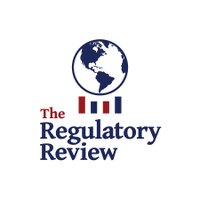
The Regulatory Review
@theregreview
Your daily source for regulatory news, analysis & commentary. From the Penn Program on Regulation at @Penn. RTs & links ≠ endorsements.
ID: 254363245
http://www.TheRegReview.org 19-02-2011 04:00:16
49,49K Tweet
5,5K Followers
2,2K Following





To address the challenges posed by precedential adjudications, Roger Nober of GW Regulatory Studies Center recommends agencies provide earlier access to appeals before final agency action and increase transparency for outside stakeholders. theregreview.org/2025/06/06/wee…


The U.S. Securities and Exchange Commission has moved to dismiss its lawsuit against cryptocurrency platform Binance and its founder, reflecting a broader shift toward less cryptocurrency oversight under the second Trump Administration. buff.ly/7h0uVWF



In a recent essay about proposed changes to the Natural Gas Act, Jennifer Danis of Institute for Policy Integrity argues that the proposed amendments violate the Byrd rule, which bars the passage of sweeping legislative changes extraneous to the budget through reconciliation.




"The public interest should not be for sale." In a recent essay about proposed changes to the Natural Gas Act, Jennifer Danis of Institute for Policy Integrity argues the proposed reconciliation measure will "restrict the judiciary from enforcing the Fifth Amendment of the U.S. Constitution,


Prof. Cary Coglianese spoke with ProPublica about the AI models the DOGE analysis used to determine which government contracts could be cut. He said that knowing which jobs could be done in-house "calls for a very sophisticated understanding of ..." penncareylaw.news/4dRhdq1

"If policymakers were taking the long view of the labor market, they would not be restricting support for households with kids," Professor Elizabeth O. Ananat of Barnard College and Anna Gassman-Pines of Sanford School of Public Policy argue in a recent essay about work requirements for basic needs programs.



The U.S. House of Representatives has passed, and the U.S. Senate is considering, new rules that would cut SNAP benefits if recipients cannot document 80 hours of work per month—a move that Professor Elizabeth O. Ananat of Barnard College and Anna Gassman-Pines of @DukeSanfordargue argue



In a recent article, Sesil Koutra and coauthors from Belgium’s University of Mons and Université libre de Bruxelles urge governments to embed a brownfield-to-brightfield pathway in energy and land-use regulations, converting polluted sites into solar and wind projects to clean land and curb urban


A father of three works at a pizzeria with a wildly unpredictable schedule, ranging from 8 to 48 hours per week. Despite averaging 32 hours a week, he could lose SNAP benefits under new work requirements, Professor Elizabeth O. Ananat of Barnard College and Anna Gassman-Pines of





